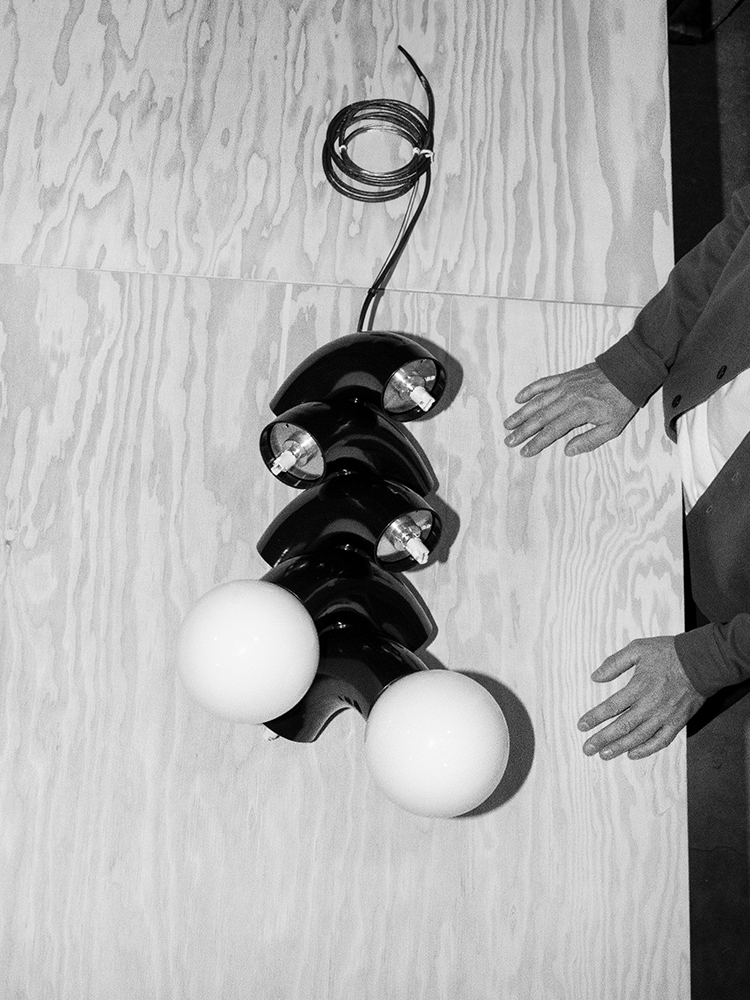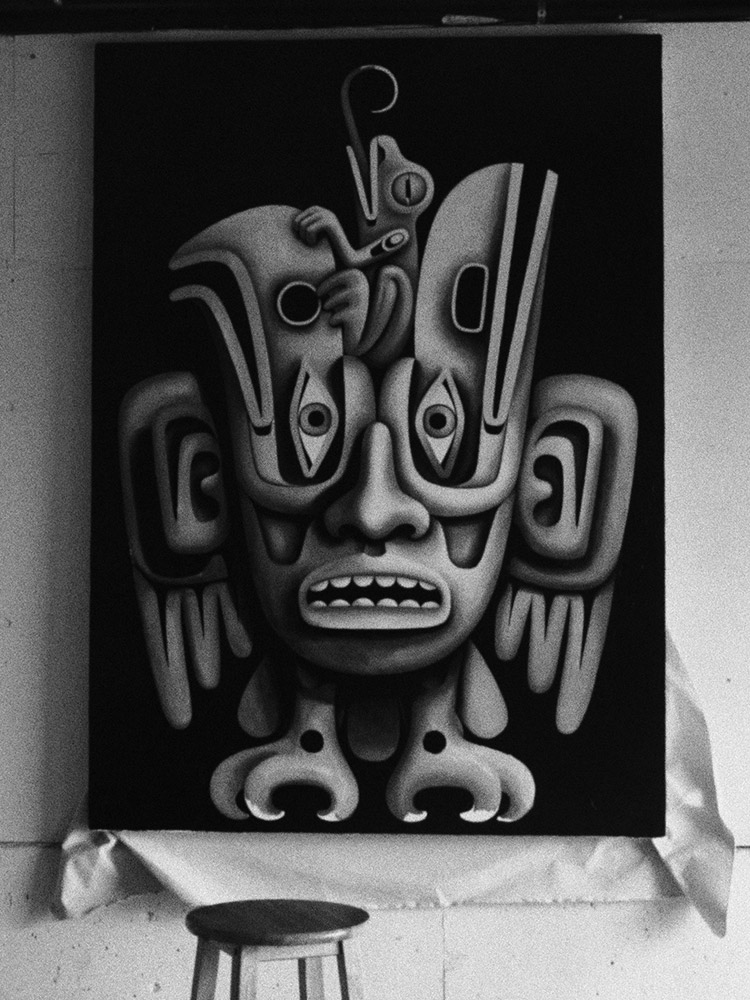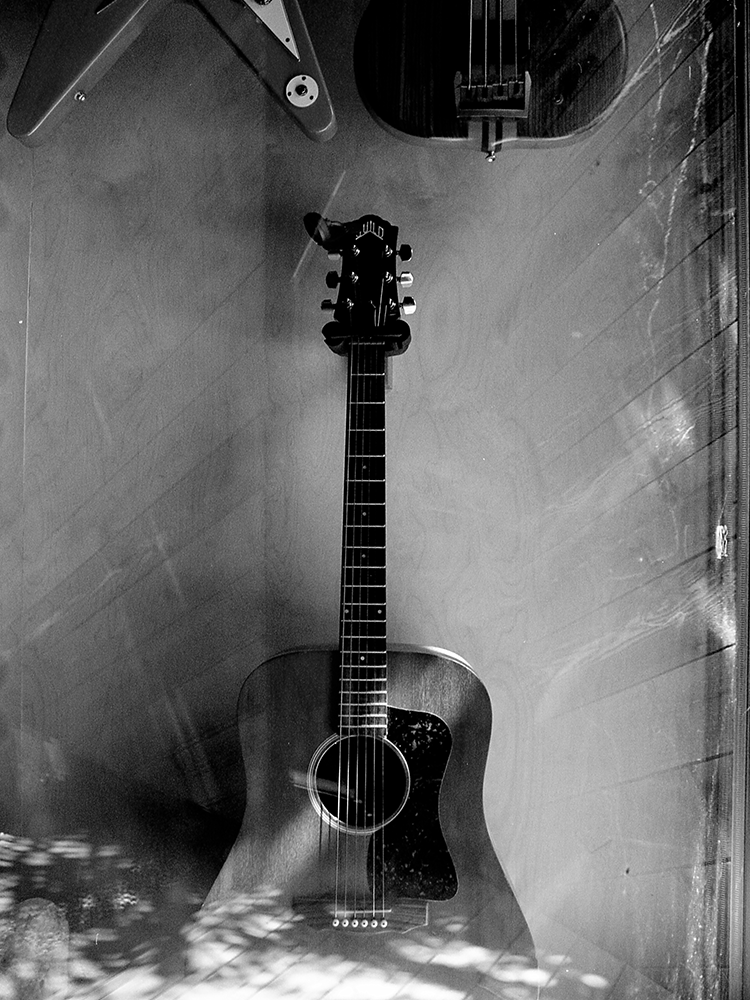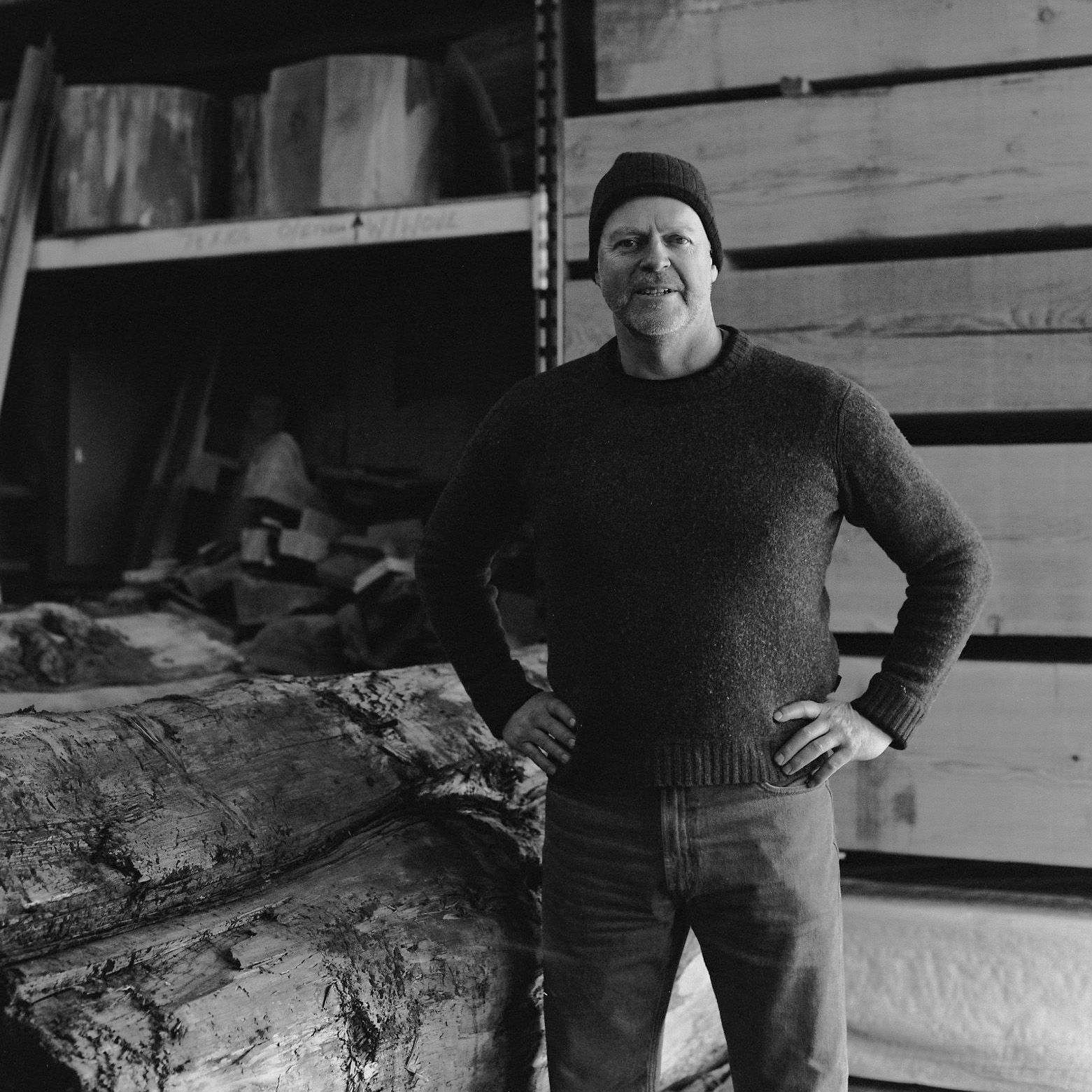
Brent Comber is an artist and designer based in North Vancouver, BC. Working with fallen trees and industrial cast offs, he has created furniture, art and installations throughout the world, with much of his work finding its home in Canada and Japan.
Last year Comber built four scorched Shattered squares for the wing+horns retail showroom, and in December we sat down with him for an interview which appears in our Spring/Summer 2014 lookbook. In this online supplement, Comber recounts carving his first benches, visions of his grandfather, and the moment he knew he’d found his path.
Comber: “It wasn’t until I was later on in life. I was in my 30’s, had my first child and wanted to start building things for her, and also renovate the house. Which took me back to an old shipyard, called Versatile Pacific Shipyard, at the bottom of Lonsdale Avenue in North Vancouver, because I’d learned my old house was built primarily to house the workers that worked at the shipyard. The shipyard was doing some seismic upgrading, and they were removing some wood from the buildings. I wanted to buy that wood and use it in the renovations of my house, thinking it would be wood of the same era. I don’t know if people think that way, but I thought it would be kind of a neat idea to do that.
So I went down there and bought some wood. It was dirty from being in a shipyard for many years, and as I was washing it, I could see the workers in the shipyard. I had this vision of everybody working there. And I think that happened because my grandfather used to drive the streetcar up and down Lonsdale back in the day, taking workers to the shipyard. I could kind of see my grandfather, whose name was Lawrence Amscold. He was a bit of a character in North Vancouver. My uncle Mr. Larson, I don’t know Larson’s first name, owned the North Van Hotel, which was the first Hotel in North Vancouver, and Grandpa used to play the fiddle there. So everybody knew Grandpa, he was the main streetcar driver and he had this really great personality. I had this vision, and this whole thing, as I was washing the wood, and I thought it was sort of unique to me.
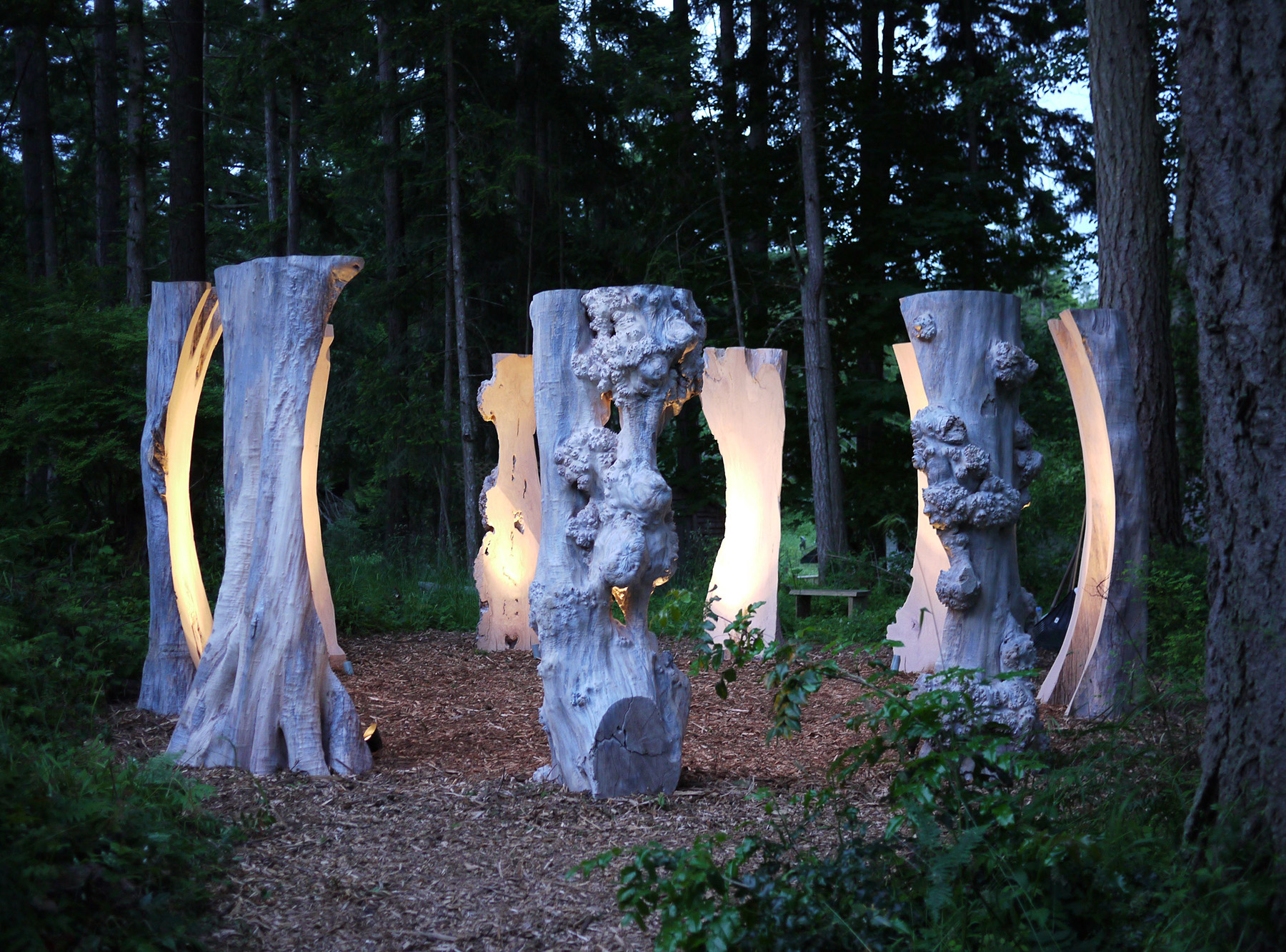
It was some months later that I started purchasing wood out of other buildings to carve benches, because I used to design and build gardens. From one building in Yaletown, for instance, I bought some blocks of wood that were perfect for benches, and I carved what is now called our Saddle bench. I showed them in Van Dusen gardens, in a garden show. I didn’t have anything priced, I didn’t have names for things, I was just putting them out there to see what people thought. It was a weekend show, and on the Friday night all the patrons that supported the garden came. They were there in their dresses and suits, with wine, walking around the garden. It was a nice affair except it poured rain, so people huddled into my tent, primarily because it was on top of a hill.
The next day however, it was a beautiful sunny day, and I could smell the cedar pieces I had carved. I love the smell of cedar, and because the sun was drying it out I could smell it. Things were going well, people were talking to me, and it was a busy morning. There was a woman, her name is Marjorie Harris. She was the guest speaker at the garden show. She loved what I was doing, and she also loved to talk. So she cornered me in my tent and I listened to her—she’s a very interesting person—for what must have been 45 minutes. Then Thomas Hobbs, who was running that part of the show, grabbed her and said, “Come on Marjorie, you’re supposed to speak,” and I thought, “Oh ok, great.” Now I get to talk to this one woman who had her back to me.
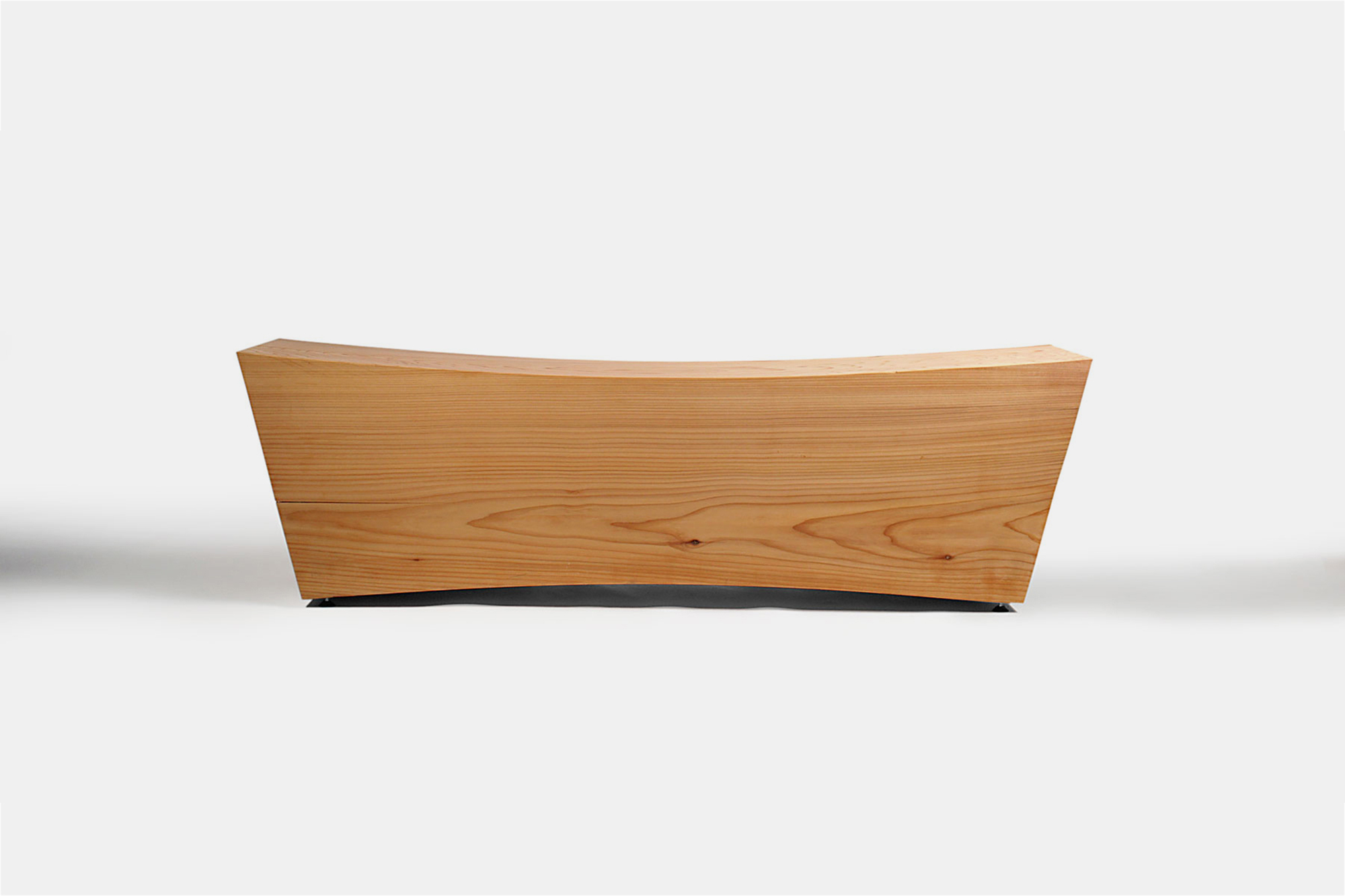
She was sitting on a Saddle bench that was out at the crest of the hill. I was looking at her all the while Marjorie was talking to me, and she was rubbing the end of the bench. She had her back to me, so I went around to the front and introduced myself. I noticed she had a tear on her cheek and I thought, “Oh, sliver or something,” and I said, “What’s wrong?” And she said, “Oh nothing’s wrong, I’m just remembering my grandfather.”
I thought that was really interesting, because I had the same visions and same feelings when I was washing the wood many months ago. And I thought it was unique to me, but when she said that, and I could smell the cedar bench she was sitting on, I said, “Well how is that possible? How are you thinking of your grandfather?” And she said, “When I was a little girl we used to sit on logs and play on the beach, and I just feel like he’s here with me right now.”
Somebody tugged on my arm to ask me something, and I turned to this person to say, “Excuse me, just a minute, I’ll be right with you.” And when I looked back this woman was gone. I don’t know where she went, because we were on top of a hill. She couldn’t have gone anywhere. I would have seen her, and I would have said something.
When I was describing this story to a writer, her name is Megan Sheldon, she said, “Brent, that was your ghost, that was your angel.” I said, “What?” And she said, “Yes, that was your angel pointing you in the right direction.” And I kind of believed that, because I never really got into woodworking to build furniture. It was really more to learn about wood. I loved it. I don’t know why. I still do love it. Something about the smell, the feel of it, the weight of it. I love the sound it makes when I’m chopping it with an axe. I’m crazy about wood. But to have the confidence to move forward in a business, when I didn’t really have any idea what I was doing, is sort of crazy. But that moment, that’s what made up my mind. This what I want to do.”

